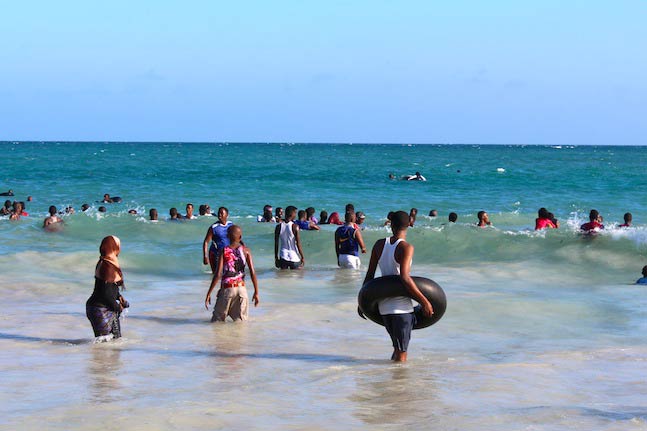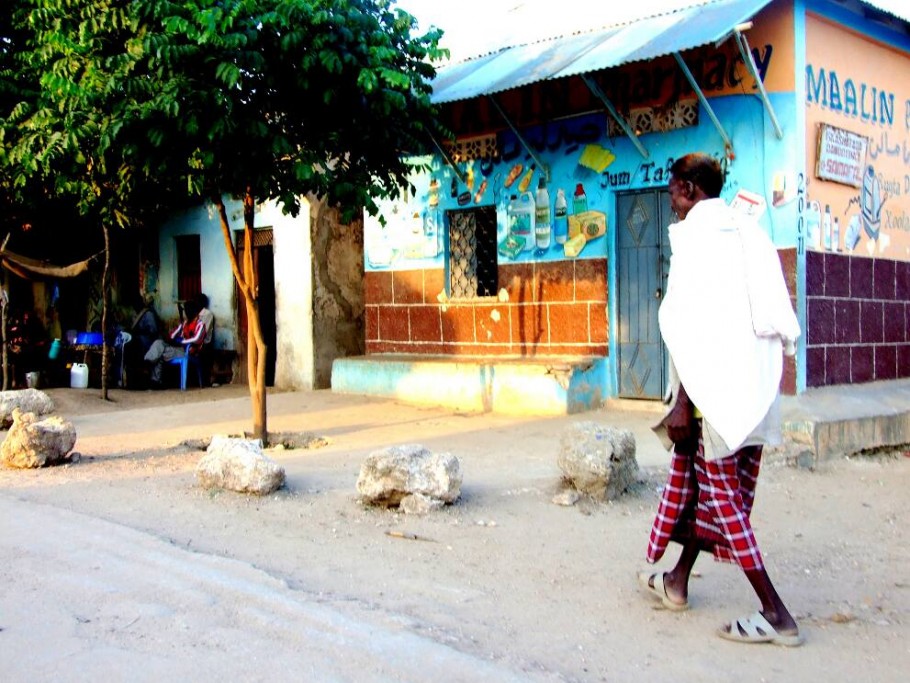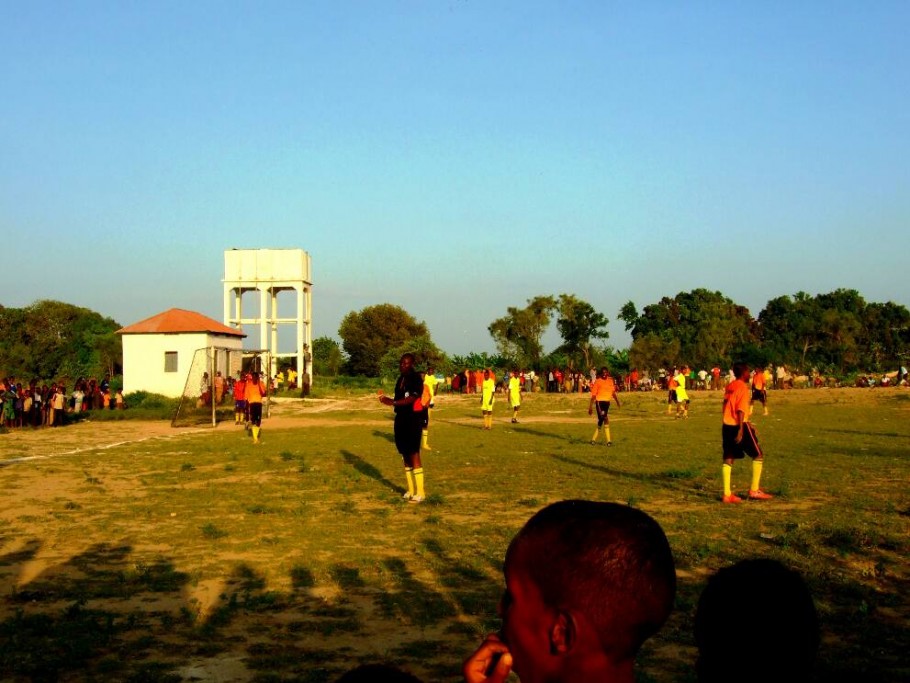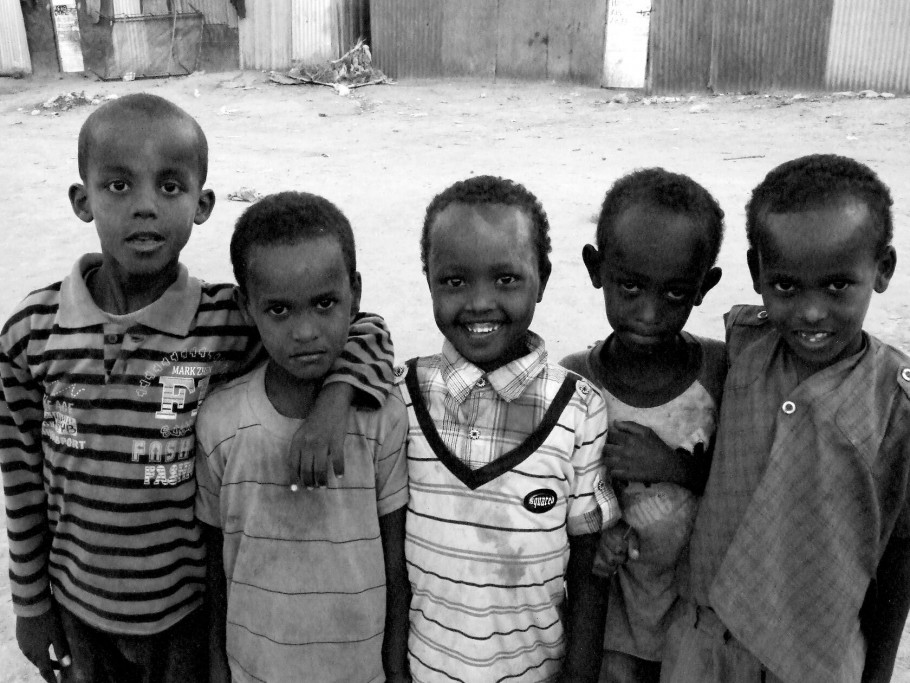“London or Minneapolis?” a soft female voice asks. It comes from a few tables behind me at Village Restaurant – a popular hangout for Somali diasporans in Mogadishu – as I finish a call to my friend.
“Eastleigh,” I respond, trying not to disclose my London background. Eastleigh is a district in Nairobi, inhabited mainly by Somalis.
Clutching a shisha pipe in her right hand that is patterned with henna flowers, she blows thick white smoke that fills up the dimly lit corner of the restaurant. “You may dress like a local but you don’t sound like the Eastleigh type. You definitely don’t look like one.”
Moving her chair to to my table, she introduces herself as Hamdi from Hamarweyne, a district in Mogadishu. In the dim lights her gold necklace and rings are hard to miss, and one can smell the incense smoke she perfumed her long, black, orange-highlighted hair with from a mile away.
Her two female friends soon join us. They’ve come here in the hope of mingling with their preferred type of men – diasporan guys.
With fragile peace holding up in Mogadishu, Somalis who have been living abroad are flocking back home for a visit. Most of them are single men – eligible bachelors. They are to Somali women what English Premier League footballers are to London women: the cream of the crop.
Most local women think Somalis living abroad, especially in the West, have lots of money. It’s easy for diasporan men to seduce them with cash, the perceived chance of a better life abroad or love. There are unproven theories that diasporan men are more romantic than local men; that only a diasporan man will drive for miles to the one flower shop in town to buy his lady flowers; that, unlike local men, diasporan men listen to their ladies while romantically gazing into their eyes.
I ask Hamdi how she knows I’m not a local. She smiles. “I can even tell what you do for a living.”
She and her friends reckon there are three types of diasporan men in Mogadishu. Like spots on the skin of a leopard each group has unique features, they say. They dress and carry themselves differently.
1. The government workers
This group is mainly made up of former taxi drivers from London, Minneapolis, Toronto and Sydney who have returned home to work in government.
They wear oversized two-piece suits and walk around with briefcases whose contents are a mystery. To finish off the look, they sport dark glasses (plastic). This group, the girls say, don’t have the most amount of money. They’re very visible at the beginning of the month just after they’ve received their meagre pay cheques. Their strong point is that they have access to power, which means they can potentially help you land a job if you play your cards right. This group attracts unemployed female university graduates looking for work in government offices, Hamdi’s friend Fartun reveals.
2. The business types/MBA
More often than not, these men are dressed in expensive sarongs and polyester shirts. They’re older than the government workers and tip the obese end of the scale, but they have deep pockets.
What they lack in looks and charm, they compensate for in gifts. They usually have at least one wife outside Somalia and half a dozen children. These men are commonly referred to as MBA – Married But Available. They attract women who dream of shopping trips to Dubai and are okay with being the second, third or fourth wife.
3. The cool guys
According to the ladies, this group has the most fun but the lightest pockets. They’re the new cool kids on the block, sent back to Somalia by their families because they’ve become too westernised in their adopted home countries. They depend on donations from relatives in the West and have the worst reputation among the locals.
Young and fashionable, they sport the latest hairstyles like mohawks and some have tattoos hidden under their long sleeve shirts. If they don’t conceal them, they risk facing the wrath of conservative Muslim locals.
You can find the cool guys chilling on Liido Beach or Hamarweyne, the most liberal district of Mogadishu. They know how to throw underground parties on a budget among the bullet-battered buildings of the city, and supply all kinds of illegal recreational stuff. To be seen with them is to play with fire but the girls who want to be “Hollywood cool” feel at home in their company.

Fartun prefers the business types because they can afford the things she likes in life, like dining at the few nice restaurants in town. A decent meal for two at one of these spots can start at US $25. In Somali culture men always pay for the meal, which means high-end restaurants are out of budget for many of the local men.
With the summer holidays coming up, an influx of diasporan men are expected in Mogadishu in the next few months. Hamdi and her friends say they’re happy about this – the more fish in the sea, the better the chance of a good catch.
Before leaving the restaurant, I again ask Hamdi what she thinks I do and what group of eligible bachelors she’s put me in. After inspecting me from head to toe, she says: “Judging by the sandals and the T-shirt you wearing, you look like they’ve deported you from London.”
Hamza Mohamed is an independent British-Somali journalist. Connect with him on Twitter.



